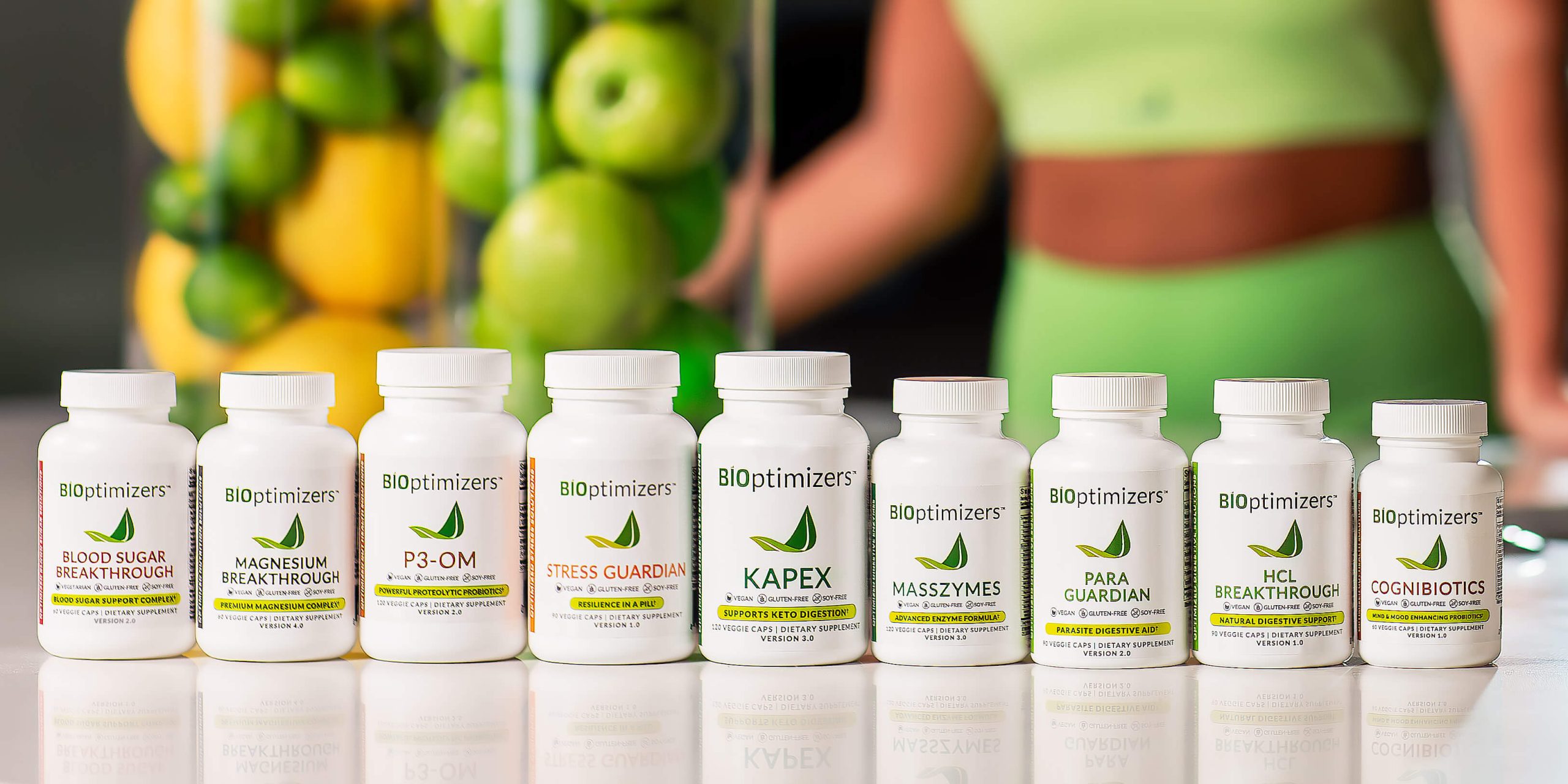
How To Tell If Vitamins And Supplements Are Good Quality
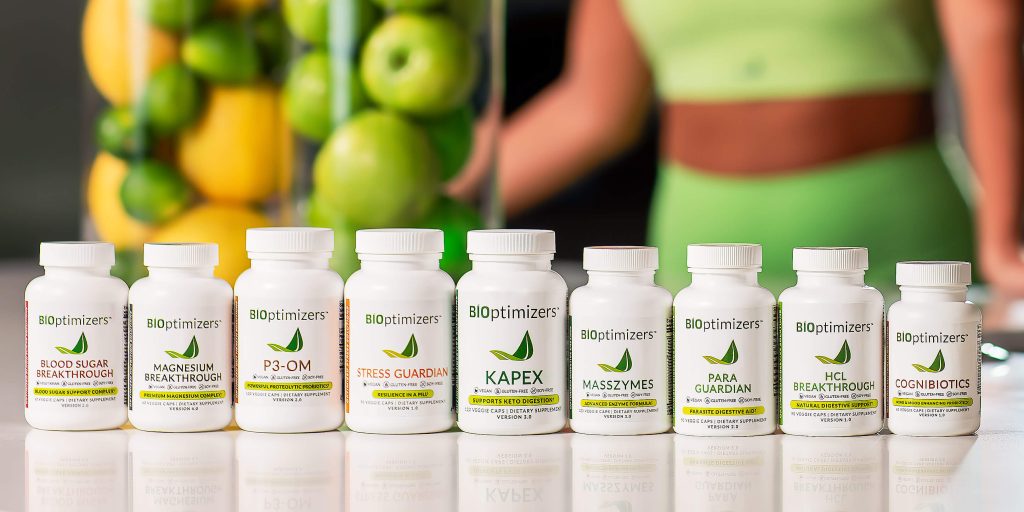

How To Tell If Vitamins And Supplements Are Good Quality
In this article, we’re sharing with you both as industry veterans and consumers everything you need to know to gauge your supplement quality and how to choose the best ones.
How to tell if vitamins and supplements are good quality
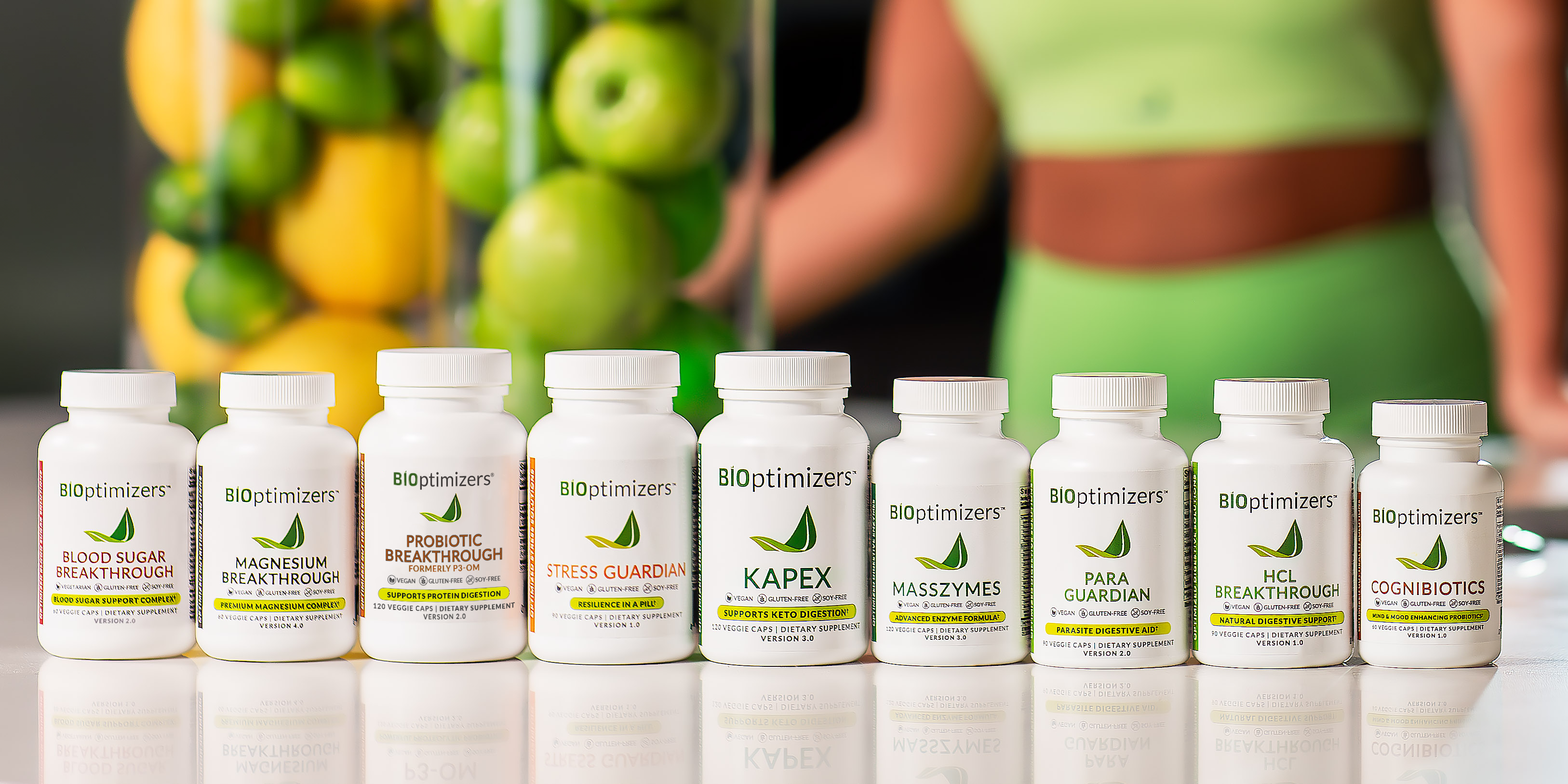
The dark side of the supplement industry
Here’s the dark elephant in the room: people selling useless garbage or worse, poison, marketed as magic pills.
The United States has the loosest supplement regulations in the world. This is both good and bad.
The good: it allows a great deal of innovation in this industry. Most new supplement ingredients and products originate in the US before they have to go through regulatory hurdles to enter other markets. This is also why supplements are relatively inexpensive compared to drugs—avoiding all the complications drugs go through saves a lot of money.
The bad: a lot of bad players get away with cutting corners or even labeling dirt as dietary supplements. And this tends to go on for a while before they get busted.
The FDA regulates dietary supplements like food, as long as vendors don’t make drug claims, add drugs, or cause harm to the general public. Food, and thus dietary supplements, do not require FDA approvals. However, they have very limited resources for enforcement and can barely catch up with the rapid growth of the industry.
Even so, they have busted hundreds of supplements tainted with prescription drugs. Some supplement companies spike supplements with anything from Viagra, to steroids, and worse. And arguably just as bad, hundreds of supplements from major retailers have been tested and were found to have NONE of the key ingredients.
Those are some big risks, not to mention the lies. Most supplement companies exaggerate and lie about the efficacy of their products just to make a quick buck.
Having been in this industry for close to 30 years, we’ve been appalled by what we found numerous times.
Wade got his first taste of this in the year 2000…
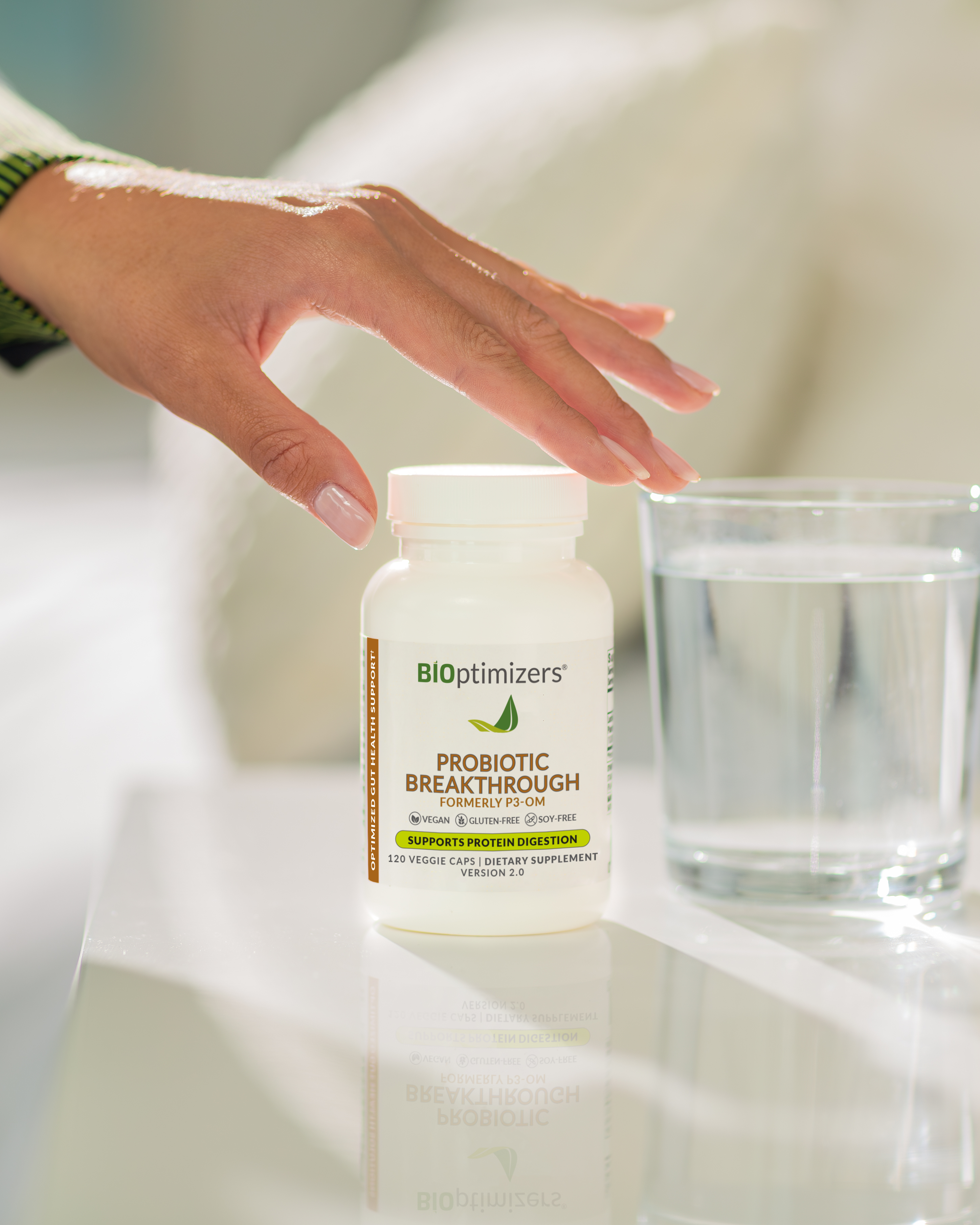
“Back in approximately 2000, I was approached by a group of business people to write a book under the ‘Dummies’ brand.
The concept of the book was to use it as a tool to sell nutritional supplementation and I was commissioned to elicit the principles of fat loss and combine it with developing a multiphase nutritional supplement to accelerate a person’s fat metabolism potential.
It sounded like a good idea. I was excited and somewhat naïve. I was a personal trainer and a supplement store owner. So they first wrote out the concept of what the premise of the book was supposed to be and then I would be hired to “dummify” people and the book.
Then the executives flew me to California to meet the head of the human physiology department at a major well-known university in the state of California.
The person suggested to us that if we were willing to spend $100,000, they would design and develop an experiment on insects that would prove the points that we wanted to prove to support the literature that we developed.
That was red flag number one. Red flag number two happened a few hours later when we went over to the supplement manufacturing facility, which at the time was producing approximately 30% of the nutritional supplements in the United States.
When I met the Ph.D. at this manufacturing facility, he talked us through the facility of how things are manufactured, how they source their materials, and all that stuff.
Then I asked him straight up, ‘Well, which nutritional supplements did you take that they produced?’ He quickly said he didn’t take any of them.
Then I said, ‘Well, why not?’ ‘Because…’ he said, ‘I have no idea about the source, the quality, and the efficacy of anything that we’re putting here. I’m just here to do the contractual work and turn out what people want within the margins that are set forth by these boards.’
Afterward, I was kind of shocked by these two experiences. Then, when I met the group of people who were putting forth this nutritional supplement company and advertising the marketing materials, the conversation had nothing to do with the efficacy of the product. It had everything to do with the amount of margin that they could generate by selling lies in a bottle.
At that point, I exited the deal because I was horrified, and my naïve self was kind of shattered permanently. When I got back to Vancouver, I made a vow to myself that I would never produce a product that didn’t work, and if it didn’t work for somebody, then they could get their money back.
That is one of the foundational principles that led Matt and I to the development of BIOptimizers’ formulas. We have always put the mission of helping others ahead of maximizing margin.”
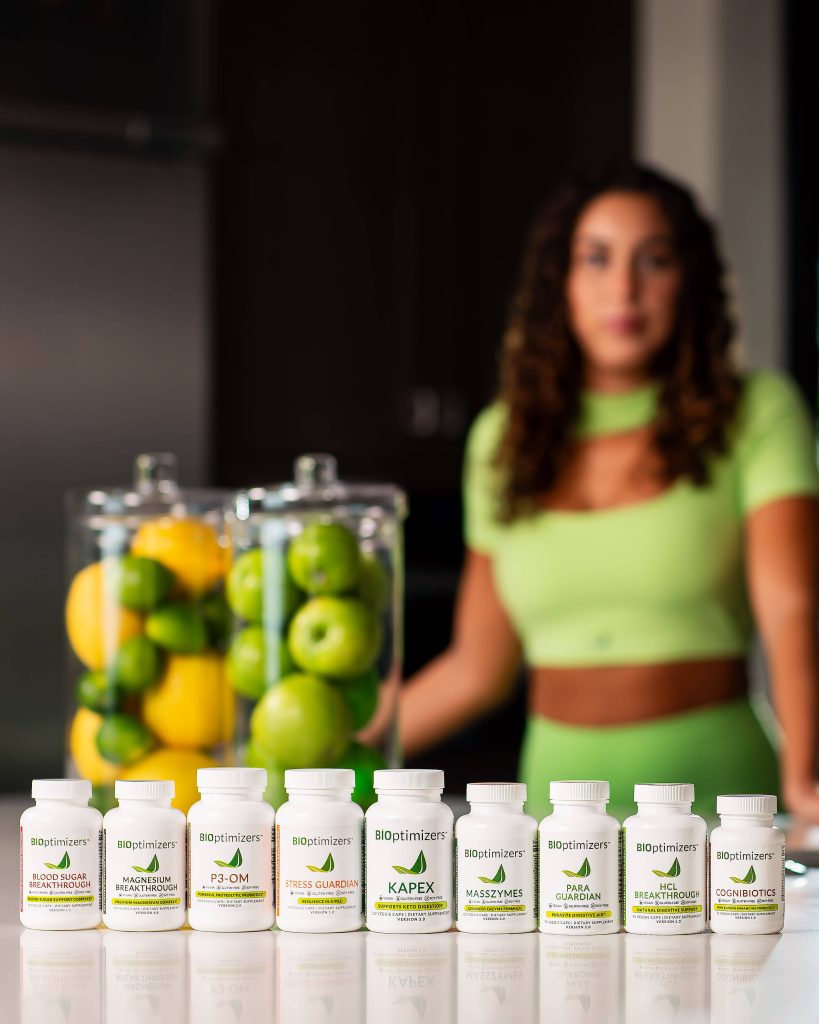
Now that we’ve scared you, let us assure you that there are some good players in the industry.
How to tell if a supplement vendor or brand is ethical:
- Physical address and easy-to-reach phone number on the product labels
- A list of all the ingredients
- Formulas with safe and evidence-based effective doses of ingredients
- They have ongoing, long-term customers and don’t rely entirely on aggressive marketing to thrive. This can only happen when their products work.
- Lack of harmful fillers and ingredients such as artificial colors and things like titanium dioxide
- Practitioners who routinely rely on supplements notice clinical effectiveness and continue to recommend or prescribe them.
Note: Most medical doctors deal with drugs, not supplements, and generally distrust supplements.
- Other signs that the company plans to be around for a long time, such as:
- Trustworthy refund policies that demonstrate their confidence in the products
- Responsive customer service team
- Fast and reliable shipping
- Investments in research & development, patents, and new facilities
- Good reviews and overall online reputation
- The company has a business presence in Canada, which regulates supplements and has stricter quality requirements. However, not all good supplement companies are in Canada.
US laws require supplement manufacturing facilities to be certified with Good Manufacturing Practices (cGMP) that demand certain hygienic practices along with third-party testing of raw materials and each finished batch of the products. cGMP practices prevent contaminations and mislabeled products and ensure that you consistently get the promised results.
What Makes a Supplement Company High-Quality and Cutting-Edge Beyond the Basic Legality?
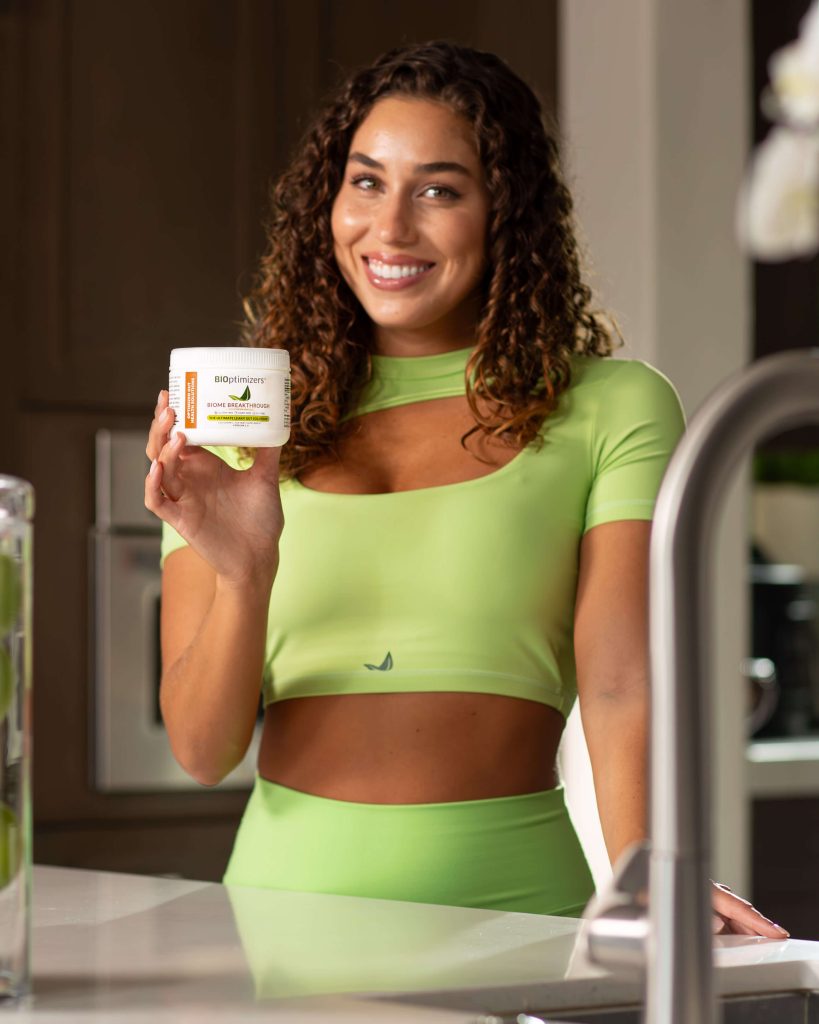
There’s a common element to high-quality nutritional supplement companies. It’s almost always that the founder had some sort of challenge or an objective that they wanted to achieve. Then went on to some epic crusade to solve the particular issue for themselves or someone close to them.
They did the due diligence to source the proper materials, find the proper results, get the right combinations, and produce the product from start to finish using the best people possible. Then, created a brand or a product that served the community with related challenges or ambitions.
That is probably the most common element in every single successful supplement company that we know of, starting from Paul Bragg, who ran the first nutritional supplement company and the Bragg crusades all the way up over the last hundred years.
It’s one of the elements to look for in selecting a supplement company.
That’s a classic entrepreneurial path. They have an itch that they don’t feel anyone else could scratch so they build the scratch themselves. It’s like Elon Musk; he wants to go to Mars so he had to build a whole spaceship system.
Most of our supplements were built with that in mind. MassZymes was built because we’re big protein users. We knew the power of enzymes and there really wasn’t anything that was designed for protein, so we started with that.
Then, when we understood the power of nutrients, the trace minerals, we built Primergen. We were burnt out so that led to Magnesium Breakthrough.
Blood sugar optimization was close to home for Matt as his mother-in-law lost both of her feet to blood sugar issues. His wife also had an alarming blood sugar once. So, he’s determined to help people learn to optimize their blood sugar and not get to that point.
We created nootropics because we’re just obsessed with brain performance and creating desired mental states.
Virtually every product we’ve built has been because we want the best. We don’t trust anybody else to build that quality, so we do it ourselves.
In general, most supplement companies aren’t innovating. Good companies use supplements that have research behind them, which is great. It’s good and for some people, that’s enough. However, we’re trying to innovate.
The three world-class doctors that talked about the minimum, maximum, and optimum dosages are Dr. Abram Haffer, Dr. Linus Pauling, and Dr. David Hawkins in orthomolecular nutrition.
Their concepts, which they first released in orthomolecular psychiatry in the 1970s, turned the whole world upside down by treating a variety of conditions with super physiological doses of nutrition.
As well as using a combination of products for the optimal stacking effects.
How NOT to Buy Supplements
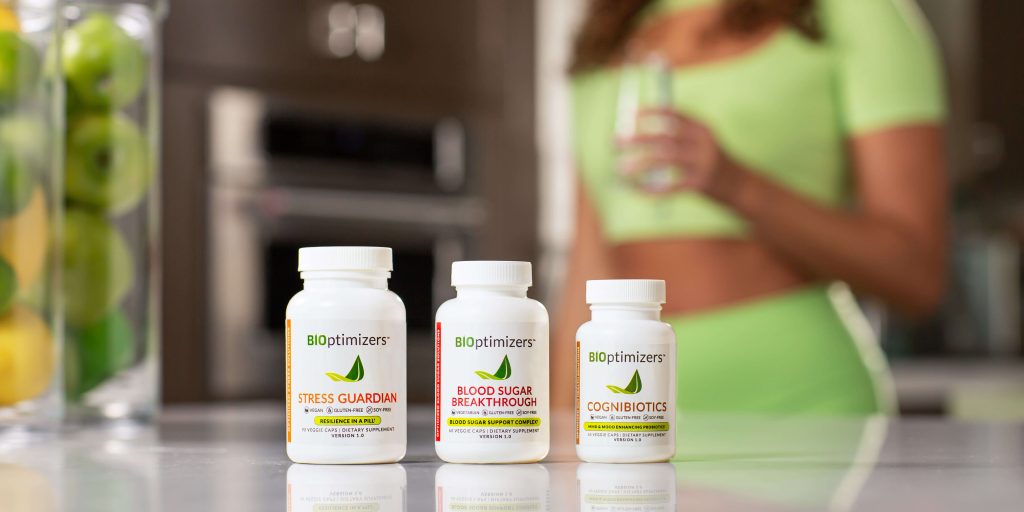
Every year, millions of consumers make the mistake of buying the wrong supplements. Here are the trends we tend to notice with supplement quality in these locations.
Note that while these are general trends that people and doctors who know best about supplements notice, there could be some exceptions, especially if you’re buying simple 1-ingredient supplements.
When you do purchase from these places, you want to read the ingredients list, check the supplement facts label, and do research on the manufacturer to make sure they’re high-integrity and don’t contain harmful ingredients.
BIOptimizers is an official vendor on Amazon and we are working on getting shelf spaces in many grocery stores nationwide, even though we still strongly prefer you purchase directly from us.
1. In Pharmacies or Grocery Stores
In some countries, supplements are regulated like drugs and you can only get them from pharmacies.
In the US, chain pharmacies evolve to sell practically anything, from alcohol to soda, chips, candies, skincare, and cleaning products. It’s typically the last place you’d get anything healthy.
Grocery stores are tough businesses. They make on average 1 – 3% profit margin. When you buy supplements from a grocery store, most of what you pay for goes into packaging, distribution, supply chain, advertising, commercial real estate, and shelf space.
We’ve also observed that supplements in grocery stores and pharmacies tend to:
- Come in inexpensive forms that are less bioavailable or less usable to the body
- Contain unhealthy ingredients such as artificial colors or fillers like titanium dioxide
- Be ineffective doses or simply at recommended daily intake levels, which are the bare minimum
- Be produced by large food or pharmaceutical conglomerates, which largely profit from more people being unhealthy
It’s counterintuitive because some consumers and doctors are more trusting of products they see in grocery stores or on TV ads.
2. From Online Platforms Where Anyone Can Sell Anything
Occasionally, you’ll find supplements on sale on sites like eBay, Amazon, or MercadoLibre. Now even Walmart.com allows external vendors to list and sell their products.
Consumers trust these sites because they’re household brands that have invested years and millions on trustworthy refund policies, buyer protection, and reliable delivery timelines. Many of these sites even have their own supply chains, delivery trucks, and warehouses.
When anyone can list products on these sites, the following can happen:
- Anyone can start a new supplement line with as little as $5,000 – $10,000 for the first few hundred bottles and make a profit with minimal proof of safety and effectiveness.
- Independent vendors can create counterfeit products of popular brands.
- Independent vendors can buy cases of short-dated products inexpensively, swap out the expiry date, and resell the products at full price. This has happened.
If you’ll buy supplements from these sites, make sure you’re only buying from the manufacturer as the official vendor. Avoid the “also available from” option.
Here Are the Best Places to Buy Your Supplements
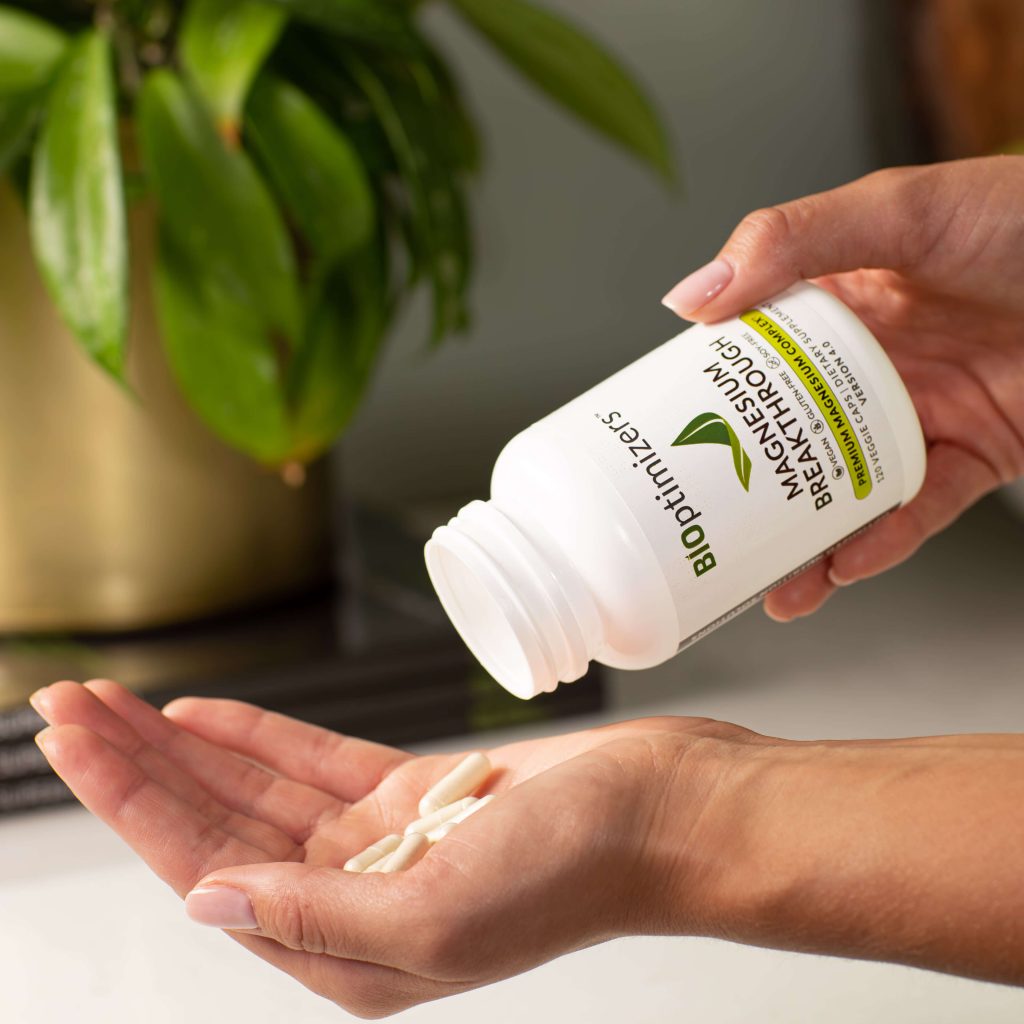
1. Directly From the Vendor
Buying supplements from your vendor is the best option for many reasons. First, you can be 100% sure of what you’re buying and whom you’re getting it from. The supplement vendors also get to control the customer experience, delivery time, discounts, and more.
Second, supply chain factors, such as hot warehouses and radiation (i.e. X rays and UV), can kill your supplements, burst bottles or capsules, and cause leakages.
Since many BIOptimizers products are probiotics, we test our supply chains by sending the first orders to our own homes and then re-testing the delivered products in the lab to see if the products survive the supply chain. If our products are heat-sensitive, we add an ice pack. This is often not possible if you buy supplements in a grocery store or vendor sites that are not geared for delivering the best supplement qualities.
Last but not least, you’ll tend to get the best customer service experience, refund policy, bonuses, and discounts by buying directly from the vendor. If something happens, it’s easiest for them to track your order and troubleshoot the problems.
2. From Your Practitioners Who Routinely Rely on Supplements in Their Practice
When it comes to supplements, there are two types of practitioners–ones who routinely prescribe and receive feedback from their patients about supplements, and ones who don’t.
Most medical doctors are skeptical about supplements. We don’t blame them because there are a lot of garbage supplements. However, if they believe all supplements are garbage or unproven, chances are they won’t give good advice about supplements.
Most conventional medical practices aren’t set up for doctors to regularly receive feedback from their patients because everyone is overwhelmed. Up to 55% of patients miss their follow-up appointments even when it can be life-threatening.
In contrast, integrative doctors, nutritionists, or other types of alternative practitioners tend to:
- Receive better training and mentorship about supplements
- Routinely prescribe supplements as part of their treatment plans
- Do a better job at listening, coaching, and receiving feedback from their patients
Nowadays, many professional brands are only available to licensed or certified practitioners, and you may have never heard of these brands anywhere else. These brands spend minimally on marketing and instead focus on educating the practitioners.
In general, we recommend seeing practitioners who have consistently delivered great results in the area of health you’re seeking to improve. Take supplement advice from them. Run your full list of supplements by them. Purchase supplements from their clinic or clinic’s online stores such as FullScript.
Obviously, if you’re taking medications or receiving any kind of conventional medical treatments, you’ll still need to check with your medical doctor and pharmacist for any potential drug interactions or contraindications. You should also keep them up to date with what you’re taking. And, if you have any medical conditions, absolutely talk to your doctor before adding any new supplements.
3. In Health Food Stores or Supplement-Specific Specialty Sites
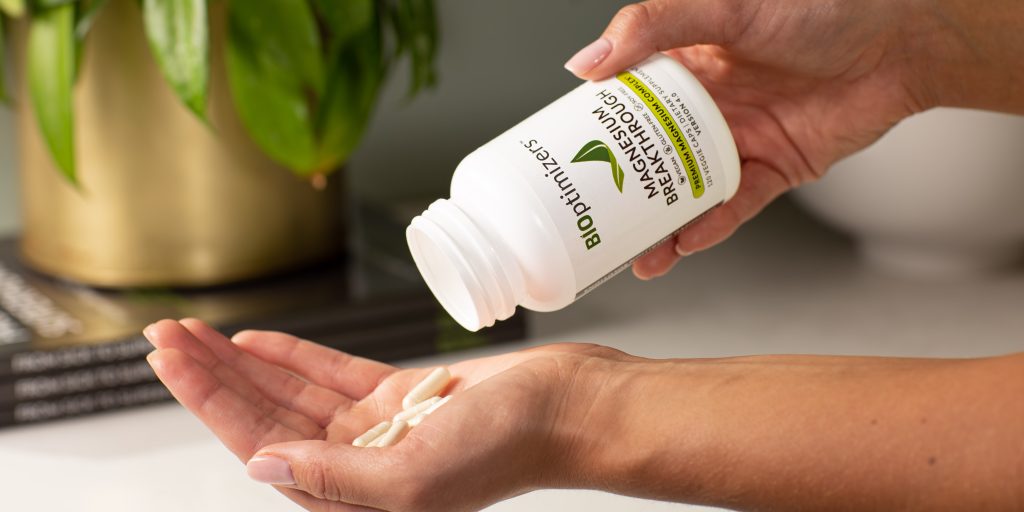
Another place to buy supplements would be where health-conscious people go to shop. These include your neighborhood mom-and-pop health food stores. In the US, there are also many chain health food stores or supermarkets such as Sprouts, Whole Foods Market, and Mother’s Market.
Increasingly, these stores are developing home delivery or e-commerce options. One of the best international e-commerce sites for supplements is iHerb.com, since it’s recommended by Dr. Michael Murray, ND. They have third-party supplement testing, cGMP-certified facilities with climate control, along with supply chains that will preserve the quality of supplements.
Harmful Ingredients to Avoid In Supplements (not an exhaustive list)
Lastly, read the ingredient list of your supplements. If the product has the following, don’t purchase it.
- Aspartame
- Acesulfame K
- Benzene
- Butylated hydroxyanisole (BHA)
- Butylated hydroxytoluene (BHT)
- Bisphenol
- Carmine
- Carboxymethylcellulose
- Carrageenan
- Cyclamates
- EDTA
- Ephedra
- Titanium dioxide
- Magnesium silicate
- Metallic colors
- Petroleum such as petrolatum
- Polyvinyl alcohol
- Artificial coloring such as FD&C red #40, blue #1, yellow #5
- Saccharin
- Sorbitol
- TBHQ (tertiary butylhydroquinone)
- Hydrogenated fats
- Artificial flavors
In conclusion, you’ve learned about how the supplement industry operates and how best to choose your supplements. We hope this information helps you to make the right decisions and reap the greatest benefits from your supplements.
References
- Center for Food Safety, & Nutrition, A. (2023, May 13). Small Entity Compliance Guide: Current Good Manufacturing Practice in Manufacturing, Packaging, Labeling, or Holding Operations for Dietary Supplements. U.S. Food and Drug Administration; FDA. https://www.fda.gov/regulatory-information/search-fda-guidance-documents/small-entity-compliance-guide-current-good-manufacturing-practice-manufacturing-packaging-labeling
- What is a good profit margin for grocery store. (n.d.). Marketing Food Online. Retrieved August 15, 2023, from https://marketingfoodonline.com/blogs/news/what-is-a-good-profit-margin-for-grocery-store
- Jaqua, M. (2023, April 17). Counterfeit Products Sold on Amazon Impersonating Prominent Brands. WholeFoods Magazine. https://www.wholefoodsmagazine.com/articles/16086-fraudulent-products-sold-on-amazon-impersonating-prominent-brands
- Perron, N. J., Dao, M. D., Kossovsky, M. P., Miserez, V., Chuard, C., Calmy, A., & Gaspoz, J.-M. (2010). Reduction of missed appointments at an urban primary care clinic: a randomised controlled study. BMC Family Practice, 11, 79.
3 Comments
Leave a Comment
You must be logged in to post a comment.

One of your representatives stated to me via email, your products do not contain GMOs. I have spent well over an hour looking but nowhere to find the words GMO. Also, I was also told that you are unable to verify organic practices during the culturization phase and therefore you do not carry the organic stamp. Using the term ‘natural ingredients’ leaves room for doubt (for me) of its safety such as does it contain heavy metals. If I were to request a sample of your COA, would this be listed?
It is of most importance that what I place into my body be as clean as possible (certified organic, non-gmo, contaminant/heavy metals free, etc.).
My apologies but my inquires about your Magnesium has been ongoing and I still have not received satisfactory answers.
Kind regards,
Cindy
Hello Cindy,
My name is Ann-Marie, and I am a Happy Health Concierge at BiOptimizers!
Only natural ingredients are used in all BiOptimizers products, and these are all suitable for those on both vegetarian and vegan diets too (no animal agents). We don’t use any GMO ingredients, chemical fillers or binders in any of our products either.
Each and every batch of BiOptimizers products undergoes rigorous Quality Assurance testing to ensure only the highest quality standards are met. These tests include microbiological testing, heavy metal testing (to comply with California’s Proposition 65), and ingredient activity level testing (to ensure each capsule contains at least the minimum levels stated on the label).
In order to get the COA (Certificate of Analysis) for any of our products, you must place an order first. This is because the COA for our products is tied to a specific lot number.
Then you can contact our helpdesk once you receive your order by emailing us at [email protected]. Provide us with the name of the product(s), the Lot Number(s) which can be found on the bottom of the bottle, and state you would like the COA (Certificate Of Analysis) for the product(s).
The agent that takes the assignment of your ticket will send the request to our inventory manager and he would pull the COA information and give it to the agent to send to you.
If you have any questions, please email us at [email protected]
Take care and have a nice day!
My very best regards,
Ann-Marie
Happy Health Concierge
BiOptimizers
Very interesting info !Perfect just what I was searching for!